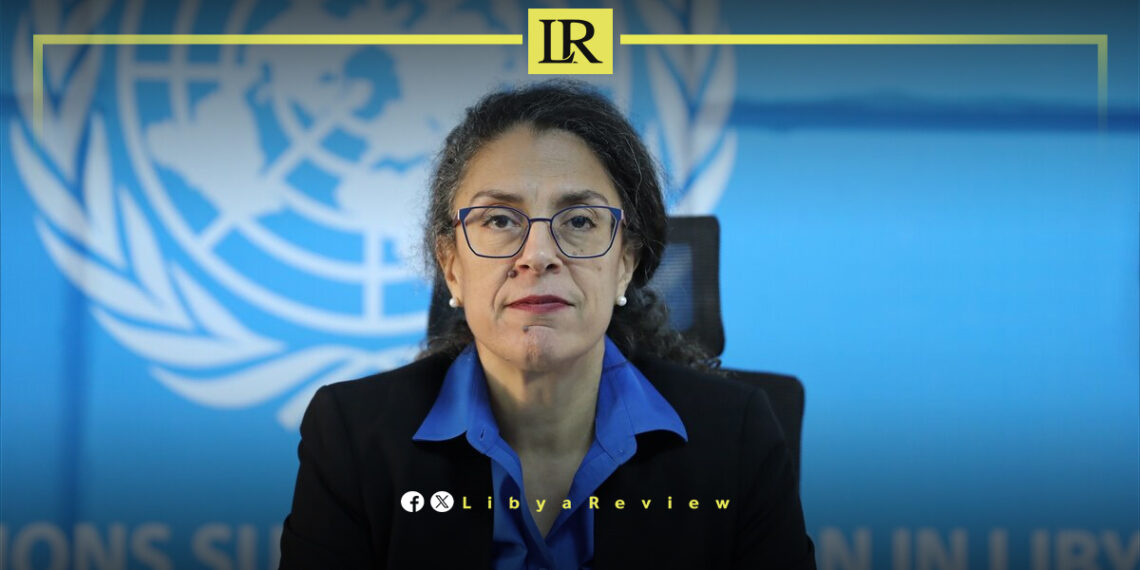On Wednesday, acting Head of the UN Mission in Libya, Stephanie Khoury, called for genuine reconciliation in Libya, warning that ongoing unilateral actions by political factions threaten the country’s sovereignty and deepen its divisions.
In her address to the UN Security Council, Khoury stressed that these unilateral moves distract from the primary objective: achieving a comprehensive political solution.
Khoury pointed to the ongoing fragmentation of Libya’s state institutions and the urgent need for a unified government to oversee national elections. She highlighted the importance of ensuring fair distribution of the country’s wealth among all Libyans and initiating inclusive political dialogue to pave the way for a lasting solution.
The UN diplomat remarked, “The resolution of the Central Bank crisis offers a glimmer of hope in resolving Libya’s broader political and economic turmoil.” She emphasised the importance of continuing the efforts to stabilise the Central Bank and called for further steps to ensure the formation of its new Board of Directors.
Khoury also touched on ongoing human rights violations in Libya, describing the situation as still dire. “Human rights violations remain a serious issue in Libya,” she said. Referring to the recent International Criminal Court (ICC) arrest warrants for six individuals involved in the Tarhuna crimes, she noted, “The ICC’s actions reinforce the principle of accountability, which is essential for Libya’s future.”
She urged Libyan authorities to improve mechanisms for accountability, uncover the truth behind the atrocities, and ensure justice for victims. Khoury also condemned the ongoing targeting of women and women’s organizations, which she said undermines reconciliation efforts and remains a serious concern for the UN.
Khoury also raised the issue of the increasing number of refugees arriving in Libya, particularly as a result of the ongoing conflict in Sudan. She emphasized the need for urgent humanitarian assistance, both for the refugees and the Libyan authorities dealing with the growing crisis. Khoury urged the international community to provide the necessary aid to address the situation.
The UNSMIL acting envoy praised the resilience of the Libyan people, especially in the aftermath of the devastating floods in Derna that claimed thousands of lives. She noted that the Libyan people deserve a better future, urging the international community to help find a real solution to the country’s ongoing crisis.
In her closing remarks, Khoury appealed to the Security Council for continued support, emphasizing that collective international efforts are essential to bring lasting peace and stability to Libya.
The political fragility of Libya’s institutions was highlighted as Khoury mentioned that the Central Bank crisis had exposed the weakness of the political process. She added that members of the High Council of State had been subjected to security threats from factions in Tripoli, stemming from disputes over leadership between Khaled al-Mishri and Mohamed Takala.
Khoury concluded by urging all Libyan parties to take further steps to maintain the momentum in resolving the Central Bank crisis and to ensure that Libya’s political process can lead to sustainable peace and stability.


